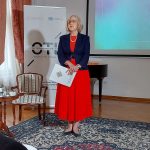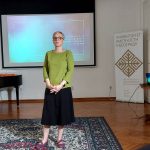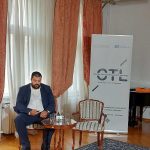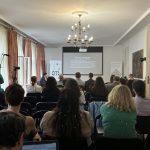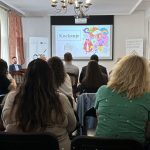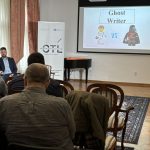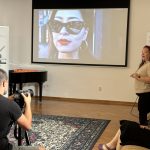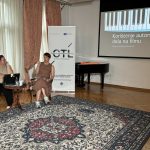Center for Teaching and Learning
![]()
About
Within the framework of Erasmus+ MAGNET project, the University of Arts is Belgrade established Center for Teaching and Learning (CTL) in January 2024.
Having in mind the importance of the continuous development of university pedagogy, enhancing teachers’ competencies, and, consequently, the improvement of teaching quality, CTL’s primary mission is to provide educational support service with the aim to foster excellence in teaching and learning through innovative pedagogy practices.
Encouraging research and knowledge on teaching and learning, CTL is strongly oriented towards:
– support and promotion of innovative teaching processes in the field of art
– improvement of teaching methods
– student support in development of knowledge and skills that are significant for their further education, employment, self-employment, and professional
To fulfill its mission, CTL is committed to:
– organise workshops, seminars and training sessions for teachers to improve their teaching skills, learn new pedagogical techniques and methods, and stay updated with the latest educational research
– organise workshops, seminars, and trainings for students to improve their skills and knowledge about employment, self-employment, professional networking, etc.
– provide tools, techniques and literature both for teachers and students
Head of CTL: Prof. Gordana Karan, PhD
Online lecture “Developing pedagogical competences in artistic fields of university education − experiences in music pedagogy”
Online lecture for teachers and researches entitled “Developing pedagogical competences in artistic fields of university education − experiences in music pedagogy” was held on June 25, 2024.
The topic of this lecture is presentation of the basic platform on which music pedagogy functions within the Department of Solfeggio and Music Pedagogy оf the Faculty of Music in Belgrade.
In accordance with the needs of articulating the content to the context and target group, we also highlighted general, universal places which are like a key or formula, applicable for organizing and articulating the acquisition of pedagogical competencies even when they are not explicitly musical.
***
The ancestors of music pedagogy originate from two sources – general pedagogical science and music science. Starting from pedagogy, through didactics to methodology, we arrive at the methodology of teaching musical literacy.
In decades of searching for answers to questions who, how much, when, why and how, and then what and with what, we will show how it was possible to transparently present the elementary starting points on which the didactic-methodical apparatus of music teaching functions. Considering its high functionality and adaptability, this presentation of the methodical organization of the educational process contains the potential of universality − it is also applicable to other artistic and scientific fields in order to organize the educational process that leads to the development of pedagogical competences.
Presenting the methodology of teaching solfege/music literacy, as a key scientific discipline in the building of music pedagogues, we point to its integrative character and the enormous potential of interdisciplinarity, multidisciplinarity, and transdisciplinarity. Thanks to the universality of methodical organization of teaching, we return to the center of the educational process, where individual stands with all his competences and potential for development and cooperation, in constant search for the optimal how.
“MEDIA Learning Lab #6: protection of creative work” was held within CTL
A one-day event “MEDIA Learning Lab #6: protection of creative work” was held at the University of Arts in Belgrade, on June 3, 2024, within the newly established Center for Teaching and Learning (CTL).
The event, which was organized in cooperation with the University of Arts in Belgrade and MEDIA Desk Serbia of the Film Center of Serbia, consisted of a series of lectures on copyright protection in the field of film, music, creative industries, artificial intelligence, etc.
Lecturers were lawyers – experts for the protection of creative work: Aleksandar Popović, from law office JPM&PARTNERS, Nikola Kliska from law office Karanović&Partners, Tatjana Bukvić from Tin Drum Music company, and Emina Peruničić from MASCOM company.
The event was organized in the framework of Erasmus+ project MAGNET – Managerial and GoverNance Enchancement through Teaching, co-financed by EU.
MOOC
In the framework of Erasmus+ project MAGNET, the University of Arts in Belgrade developed its first Massive Open Online Course – MOOC. Dr. Marija Karan, assistant professor of the Faculty of Music, created and implemented the MOOC entitled Strengthening of critical thinking and criteria by boosting the skills of decoding mass media messages among pedagogues. The course is intended for pedagogues and research students who want to improve their skills in decoding mass media messages, develop mass media and digital literacy, learn about the postulates and effects of mass media and audience theory as key factors in the formation of critical thinking and criteria for pedagogues. The course consists of videos, presentations and questions, and encompasses four thematic units: 1) Introduction and overview of the course, 2) Radio, 3) Television and 4) Internet.
The MOOC is available on MAGNET-MOOCs plaform:
https://magnet-moocs.mbg.duth.gr/courses/course-v1:uab+DCT101+2024_T1/about
Library



